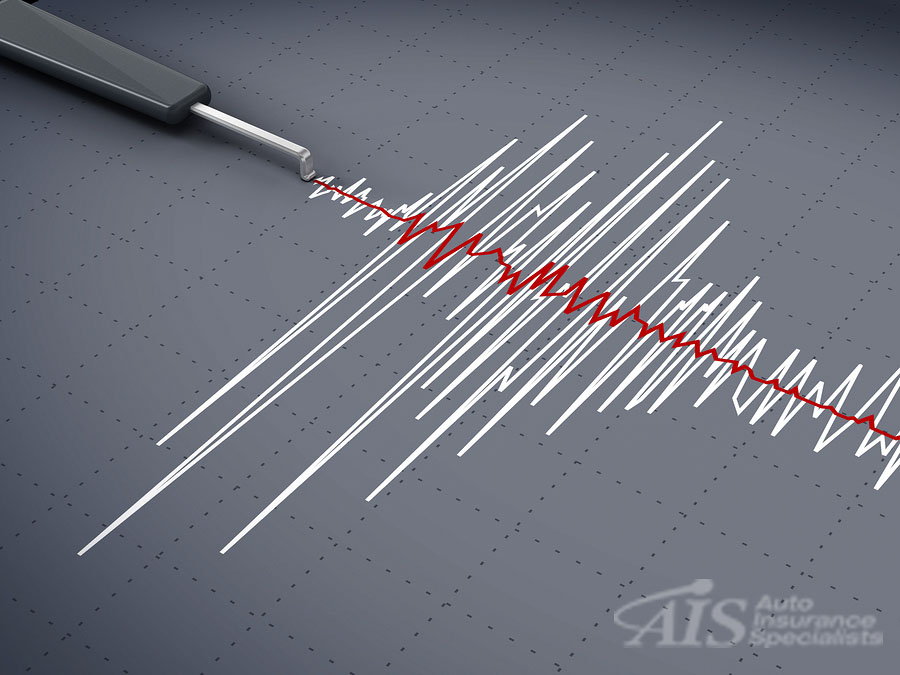After the recent Ridgecrest, California earthquakes, there has been a lot of buzz about “the big one†coming and how that will affect Southern Californian residents’ Earthquake Insurance rates. Whether you already have Earthquake Insurance coverage on your Homeowners policy or if you are looking to add it now, you should know that rates are predicted to change significantly.
Below we explain what Earthquake Insurance does and does not cover, as well as why rates are changing for this type of optional coverage.
Where Can I Buy Earthquake Insurance in California?
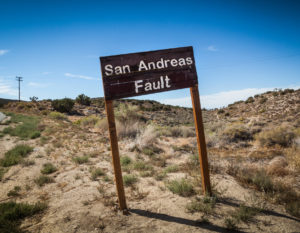 Earthquake Insurance is offered by the California Earthquake Authority (CEA) through your insurance company as an addition to your standard Homeowners Insurance. You cannot buy Earthquake Insurance directly from the CEA. A few insurance companies offer stand-alone Earthquake Insurance policies, but the majority of coverage is written through the CEA.
Earthquake Insurance is offered by the California Earthquake Authority (CEA) through your insurance company as an addition to your standard Homeowners Insurance. You cannot buy Earthquake Insurance directly from the CEA. A few insurance companies offer stand-alone Earthquake Insurance policies, but the majority of coverage is written through the CEA.
In California, your insurance company is required to offer you Earthquake Insurance every other year, in writing. This document must include the policy limits, deductible and premium of the coverage being offered. You have 30 days to accept the offer from your insurer. No reply during the 30-day period is considered a rejection of coverage.
Press Release Update From the CEO of the CEA – July 2019
The Ridgecrest earthquakes have worried many residents across California. To disparage any false claims or misinformation, CEA CEO Glenn Pomeroy made a statement regarding new CEA policies:
“CEA policies can be purchased anywhere in California, at any time, and by anyone who has a home insurance policy with one of our participating insurers. However, for new policies purchased after an event, we do not provide coverage for the next 360 hours, or 15 days, for earthquakes that are seismically related to the initial event.â€
This statement was made after concerns that insurance companies were confusing the 15-day waiting period after a seismic event with an outright moratorium in which existing residential policyholders could not purchase a CEA policy. California Insurance Commissioner Ricardo Lara also made a statement:
“If you do not have earthquake insurance, now is the time to look into getting it. A standard homeowners’ policy will not cover earthquake damage. Without specific earthquake coverage, you are responsible for all costs to repair, rebuild or replace your home and personal property.â€
What Is Covered By Earthquake Insurance?
There are three parts to a standard CEA Earthquake Insurance policy:
Part 1: Dwelling Coverage (Coverage A)
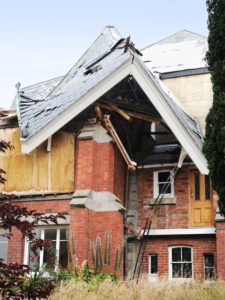 This covers your home up to a certain limit, which is the same as the one on your Homeowners Insurance.
This covers your home up to a certain limit, which is the same as the one on your Homeowners Insurance.- You will also have a deductible of 5%, 10%, 15%, 20% or 25%. This amount is not paid up front but is deducted from your total covered losses.
- Your landscaping, pool, fences, masonry or other separate structures are not covered. Exterior masonry veneer is not covered unless you add that coverage to your Earthquake Insurance.
- You do not need this type of coverage if you are a renter or condo owner. However, some condo associations do not cover your dwelling, meaning you will need to purchase your own coverage. Check with your association to see if you’re covered.
Part 2: Personal Property Coverage (Coverage C)
- This covers your personal property, such as furniture, TVs, computers, etc. up to policy limits.
- The limit for this coverage ranges from $5,000 to $200,000.
- Belongings like china and crystal are not covered unless you add breakables coverage to your Earthquake Insurance policy.
Part 3: Additional Living Expenses (ALE) or Loss of Use (Coverage D)
 This covers temporary and additional costs to live elsewhere while your area is evacuated due to an earthquake or your home is being repaired due to damage caused by an earthquake.
This covers temporary and additional costs to live elsewhere while your area is evacuated due to an earthquake or your home is being repaired due to damage caused by an earthquake.- You will be covered for temporary rental of a home, apartment or hotel room. This also includes restaurant meals, a temporary telephone line, moving and storage, furniture rental and laundry, up to policy limits.
- The limit for this coverage ranges from $1,500 to $100,000.
- Under the CEA, this coverage never has a deductible.
What Is Not Covered By Earthquake Insurance?
There are certain things that your CEA Earthquake Insurance policy does not cover, including damage caused by fire or damages to your land. However, these are typically already covered by your Homeowners Insurance. Earthquake Insurance also does not cover damages to your vehicle(s) or flood damage to your home. Your Auto Insurance policy protects you from earthquake damage if you have Comprehensive Insurance coverage on your policy. To protect your home against flooding, consider adding Flood Insurance to your Homeowners policy.
Can Renters, Condo Owners and Mobile Home Owners Buy Earthquake Insurance?
A renter, condo owner or mobile home owner can also obtain Earthquake Insurance.
 Renters Insurance. Damage to your personal belongings is covered by Earthquake Insurance. You will also be covered for costs of living elsewhere while your rented home is being repaired.
Renters Insurance. Damage to your personal belongings is covered by Earthquake Insurance. You will also be covered for costs of living elsewhere while your rented home is being repaired.- Condo Insurance. Damage to your personal belongings is covered by Earthquake Insurance. You will also be covered for costs of living elsewhere while your condo is being repaired.
- Mobile Home Insurance. Damage to your home and personal belongings is covered by Earthquake Insurance. You will also be covered for costs of living elsewhere while your mobile home is being repaired.
How Much Does Earthquake Insurance Cost?
Your premium is determined by many factors, including:
- Location. Homes in areas located closer to active fault lines will have higher insurance rates.
- Cost to Rebuild. If your home will be expensive to rebuild due to size, stories and other factors, your premium will likely be costlier.
- Construction Type. The type of materials that your home is made from will be considered in your insurance rate.
- Deductibles and Coverage. The deductibles and coverages you select affect the cost of your premium.
- Retrofitting. Older homes may qualify for a discount if they are properly retrofitted.
The CEA has an Earthquake Insurance premium calculator that you can find here.
2019 California Earthquake Insurance Rates
Many residents are experiencing a change in their Earthquake Insurance rate, but it’s not because of the recent Ridgecrest earthquakes. It’s actually due to the latest scientific evidence about where powerful earthquakes are likely to strike next in the state.
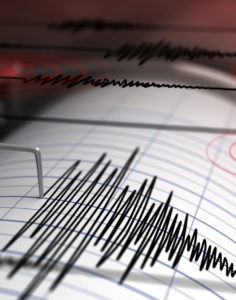 California areas that can expect rate increases: Monterey County, western portions of Fresno County, Kings County, Del Norte County, Humboldt County and Kern County.
California areas that can expect rate increases: Monterey County, western portions of Fresno County, Kings County, Del Norte County, Humboldt County and Kern County.- California areas that can expect rate decreases: San Diego County, Orange County and San Francisco County.
- Los Angeles County, which already experiences high premiums, is not expected to see rate increases due to the latest geological research.
The Uniform California Earthquake Rupture Forecast (UCERF3) predicts that a magnitude-8 earthquake or stronger is likely going to strike within the next 30 years. These findings are now being rolled into Earthquake Insurance rates, causing the premium changes across California.
Should I Buy Earthquake Insurance?
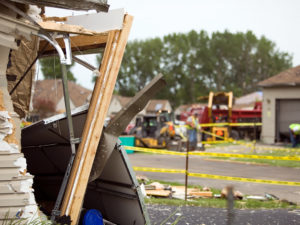 In California, it’s a smart idea to have Earthquake Insurance, especially if you live close to a fault line. The CEA reports over 15,700 known fault lines in California and more are frequently being discovered by scientists. Additionally, most California residents live within 30 miles of an active fault line. As mentioned before, if you choose not to carry Earthquake Insurance, you are responsible to pay for all repairs and damages to your home and personal property on your own.
In California, it’s a smart idea to have Earthquake Insurance, especially if you live close to a fault line. The CEA reports over 15,700 known fault lines in California and more are frequently being discovered by scientists. Additionally, most California residents live within 30 miles of an active fault line. As mentioned before, if you choose not to carry Earthquake Insurance, you are responsible to pay for all repairs and damages to your home and personal property on your own.
You may think that Earthquake Insurance is too expensive. But, will you be able to afford to repair or rebuild your home after a big earthquake without any financial help? Remember, you will have to continue paying your mortgage and taxes while you rebuild, too.
You can use the premium calculator linked above to calculate the cost of Earthquake Insurance for your situation, or you can call an Insurance Specialist at (855) 247-5298. Our agents can help you understand your rate and coverage. They can also further explain the benefits ofcarrying Earthquake Insurance on your policy, so call AIS today.
The information in this article is obtained from various sources. This content is offered for educational purposes only and does not represent contractual agreements. The definitions, terms and coverages in a given policy may be different than those suggested here. Such policy will be governed by the language contained therein, and no warranty or appropriateness for a specific purpose is expressed or implied.

